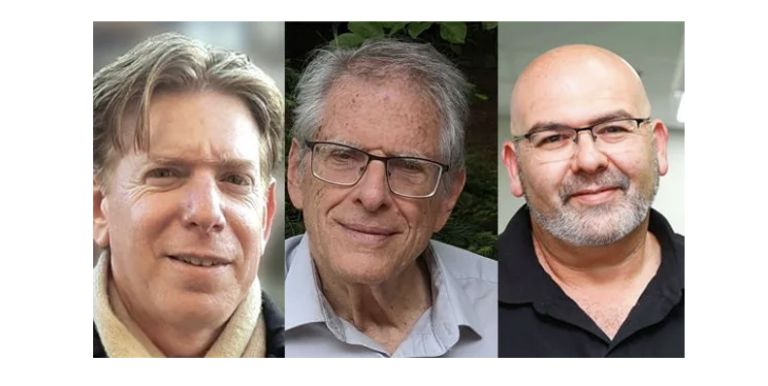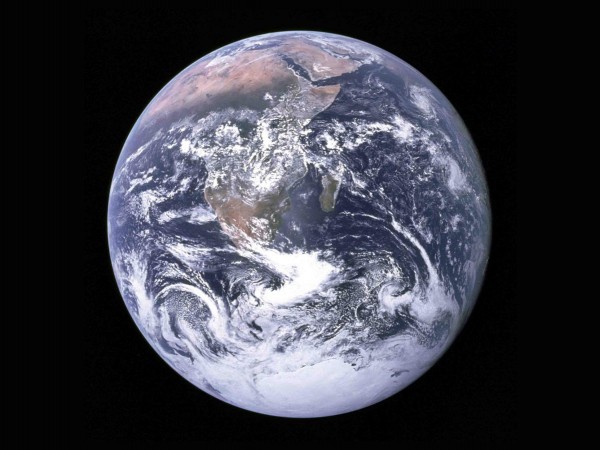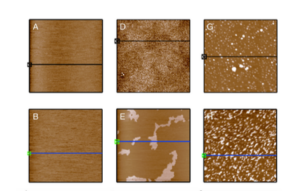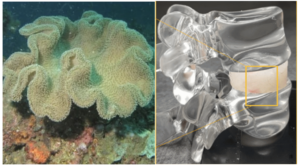Ondes gravitationnelles et formation des éléments chimiques : BGU, UHJ, Technion, une hypothèse confirmée

[:fr]
Le 17 août 2017, les détecteurs d’ondes gravitationnelles LIGO-VIRGO enregistrent 30 précieuses secondes de signal : il s’agit d’une fusion de 2 étoiles à neutrons. Pourquoi est-ce fantastique ? Etant donné que les étoiles à neutrons (de très petites et denses étoiles) émettent de la lumière, c’est la première fois que des signaux lumineux vont pouvoir être observés en même temps que les ondes gravitationnelles.
Odélia Teboul, 28 ans, doctorante à l’Université Hébraïque de Jérusalem, raconte : « J’ai eu la chance de débuter les calculs d’une telle rémanence plusieurs mois avant l’événement. Aujourd’hui nous améliorons ces calculs et nous espérons qu’ils expliqueront les futures observations ». Cette brillante étudiante a un master en astrophysique et un diplôme d’ingénieur en mathématiques appliquées. « Je suis arrivée en Israël en septembre 2017. J’étudie l’astrophysique théorique dans le domaine des hautes énergies, c’est-à-dire liés aux éléments extrêmes de notre univers », précise-t-elle à Israël Science Info.
Les ondes gravitationnelles sont des oscillations de la courbure de l’espace temps. Nous émettons tous des ondes gravitationnelles. Cependant pour que ces oscillations de la courbure soient détectables il faut des évènements extrêmes tels que la fusion de deux trous noirs ou, dans le cas présent, de deux étoiles à neutrons. Les ondes gravitationnelles prouvent la validité de la théorie de la relativité générale d’Einstein.
Environ deux secondes après la détection de la fusion par LIGO, le télescope spatial FERMI repère un sursaut gamma court : une émission très brillante et à très haute énergie. C’est l’euphorie (du moins pour les astrophysiciens). Ceci confirme une hypothèse émise en 1989 par des chercheurs israéliens dont le Pr David Eichler de l’Université Ben Gourion du Néguev et ses collègues du Technion (Pr Mario Livio) et de l’Université Hébraïque de Jérusalem (Pr Tsvi Piran).
Quelques minutes plus tard, la moitié des télescopes du monde pointent vers la zone du ciel où a eu lieu la fusion : les observations débutent. C’est une nouvelle surprise ! Lors de la fusion des deux étoiles à neutrons, de la matière est éjectée, cette matière étant extrêmement riche en neutrons. Par conséquent, elle est le siège de réactions rares permettant la formation des éléments chimiques plus lourd que le fer. L’or sur terre provient, par exemple, de la fusion d’étoiles à neutrons.
Mais ce n’est pas tout, le sursaut gamma court (GRB en anglais)* interagit avec la matière éjectée, formant un cocon. Ce cocon interagit à son tour avec le milieu extérieur, émettant une rémanence. Cette rémanence est le dernier élément à être observé, mais aussi celui qui dure le plus longtemps.
* Les sursauts gamma, rayonnement gamma à la fois puissant et bref apparaissant de manière aléatoire, observés au rythme moyen d’un sursaut par jour, ont leurs sources dans d’autres galaxies et constituent les événements les plus lumineux de l’Univers après le Big Bang (wikipedia).
Auteur : Odélia Teboul, doctorante à l’Université Hébraïque de Jérusalem, pour le BVST
[:en]In 1989, Prof. David Eichler from BGU and his co-authors from the Hebrew University of Jerusalem, The Technion – Israel Institute of Technology, and the University of Chicago published a paper in Nature proposing that if two neutron stars collided, there would be a burst of gamma rays.
Such bursts had been already discovered, but no one knew what they were, and Eichler and his colleagues proposed that at least some of them came from merging neutron stars. They also proposed that the neutron rich material would be radioactive, cause an explosion, and would be rich in ultra-heavy elements such as gold and platinum, which would be ejected by the explosion.
On August 17, 2017, their predictions were confirmed when the first binary merger of two neutron stars was observed – first by the gravitational waves they produced, and then by the coincident gamma ray burst. As astronomers pointed their telescopes at the right quadrant of space, they saw the light coming from the explosion. The spectrum of the light seems to indicate that the material is rich in heavy elements, also as predicted.
Prof. Eichler has predicted for many years that gamma ray bursts from merging neutron stars, which differ in their emission properties from those that are associated with supernovae, are typically radiation that has scattered out of the primary beam by matter in its path and viewed from an angle to the beam’s axis – much like moviegoers seeing the beam of a film projector in a smoky room from the side. Yesterday, just prior to the announcement, he uploaded a paper summarizing his arguments that gamma rays bursts from merging neutron stars are actually viewed from the side – rather than head on – and suggests the data collected from the August 17, 2017 collision could verify his hypothesis. The August 17 burst, which was very close yet relatively dim, is indeed being interpreted by the observers as supporting the wide viewing angle hypothesis.
Source Ben Gurion University[:]







